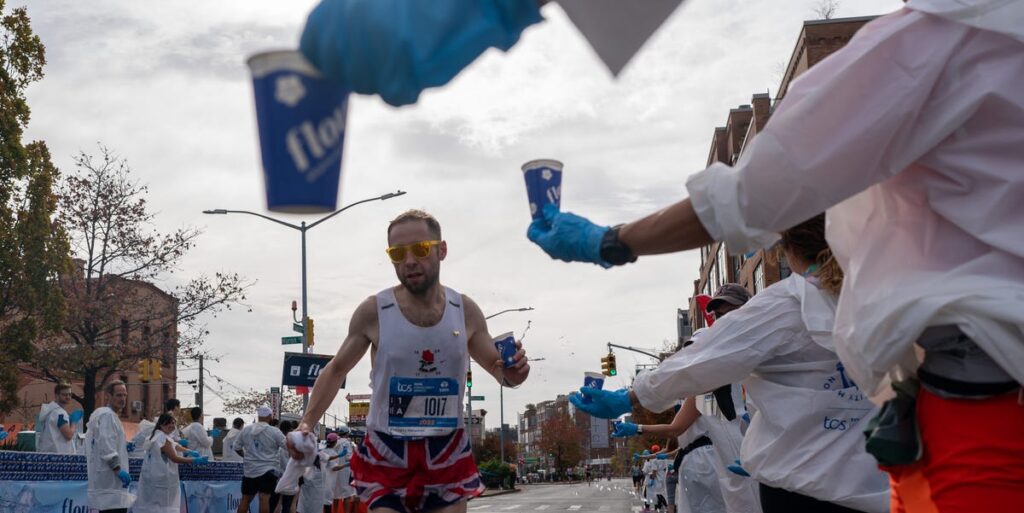Understanding Marathon Hydration: Key to Endurance Success
As marathon season approaches, many runners dedicate substantial effort to perfecting their training plans and nutrition. While meticulous attention to pre-race meals and carbohydrate loading receives considerable focus, hydration strategies often take a back seat. However, the journey toward completing a marathon extends beyond the food plate; it is essential to establish a comprehensive hydration plan that aligns with individual needs. Hydration is crucial for optimal performance, so understanding how to properly hydrate can significantly impact your race day experience.
Assessing Your Hydration Needs
To create an effective hydration strategy, runners first need to identify their specific hydration requirements. The Institute of Medicine provides a baseline recommendation of approximately 3.7 liters (or 125 fluid ounces) per day for men and 2.7 liters (91 ounces) for women aged 19 to 50. However, these figures should be adjusted based on individual exercise intensity and environmental factors, particularly as weather conditions can drive further hydration needs.
Calculating Your Sweat Rate
Understanding personal sweat rates is essential for fine-tuning hydration plans. One effective method is to weigh yourself before and after a run to measure fluid loss. For each pound lost, roughly 16 ounces of water should be incorporated into your daily hydration goals. Recognizing factors that affect sweat rates—such as running speed, body weight, and even heat acclimatization—can help you tailor your hydration strategy to ensure you are adequately replenishing fluids lost during exercise.
The Importance of Hydration on Race Day
The significance of hydration cannot be overstated, particularly on race day. Even a minor loss of body weight due to dehydration can escalate fatigue and impair cognitive functions, ultimately hindering performance. As outlined by nutritionists like Starla Garcia, MEd, RDN, LD, it is crucial to meet specific fluid needs to minimize these risks, especially for those competing in warmer climates. For instance, a bodyweight loss of 1% can increase heart rate significantly, highlighting the necessity of regular fluid intake to maintain optimal performance levels.
Hydrating Before the Marathon
Preparation for hydration starts the day before the marathon, during which runners should aim for their baseline hydration needs while accounting for additional sweat losses. Consuming sports drinks with adequate sodium content can also help retain fluid. Runners preparing for heightened temperatures may benefit from a hyperhydration strategy, where electrolyte solutions with higher sodium levels facilitate better fluid retention, enabling athletes to perform better under challenging conditions.
Morning of the Marathon: Hydration Checklist
On race morning, hydration should commence as soon as you wake up. Experts recommend starting with approximately 16 ounces of a sports drink two hours before the race. If your marathon begins later in the day, consider distributing this total intake strategically, with the goal of consuming at least 32 ounces leading up to the start. To manage potential bathroom needs, it is essential to sip fluids rather than chug them, cutting off water intake about two hours before the race to allow for bladder clearance.
During the Race: Maintaining Hydration
As you hit the pavement, decide whether to utilize on-course hydration options or to carry your hydration needs in a hydration belt or flask. If you decide to rely on race-provided drinks, familiarize yourself with the type of sports drink that will be available, as some may not sit well with every athlete’s stomach. Aiming for a balanced approach of fluid intake—both from sports drinks and water—will help replace lost electrolytes and energy during the marathon. Ensuring that you consume electrolytes along with carbohydrates is essential, as carbohydrates serve as the primary fuel source necessary for sustained energy throughout the race.
Conclusion: Craft Your Personalized Hydration Plan
Ultimately, proper hydration is a fundamental component of marathon training and race preparation. Runners must develop a personalized hydration plan by analyzing their sweat rate, environmental factors, and nutritional needs leading up to the race. Whether utilizing electrolyte drinks, gels, or water, maintaining a consistent and thoughtful hydration strategy can significantly enhance performance on race day. For further insights on marathon nutrition and hydration, consider checking out additional resources such as Runner’s World, where expert advice can guide you through your marathon journey.
